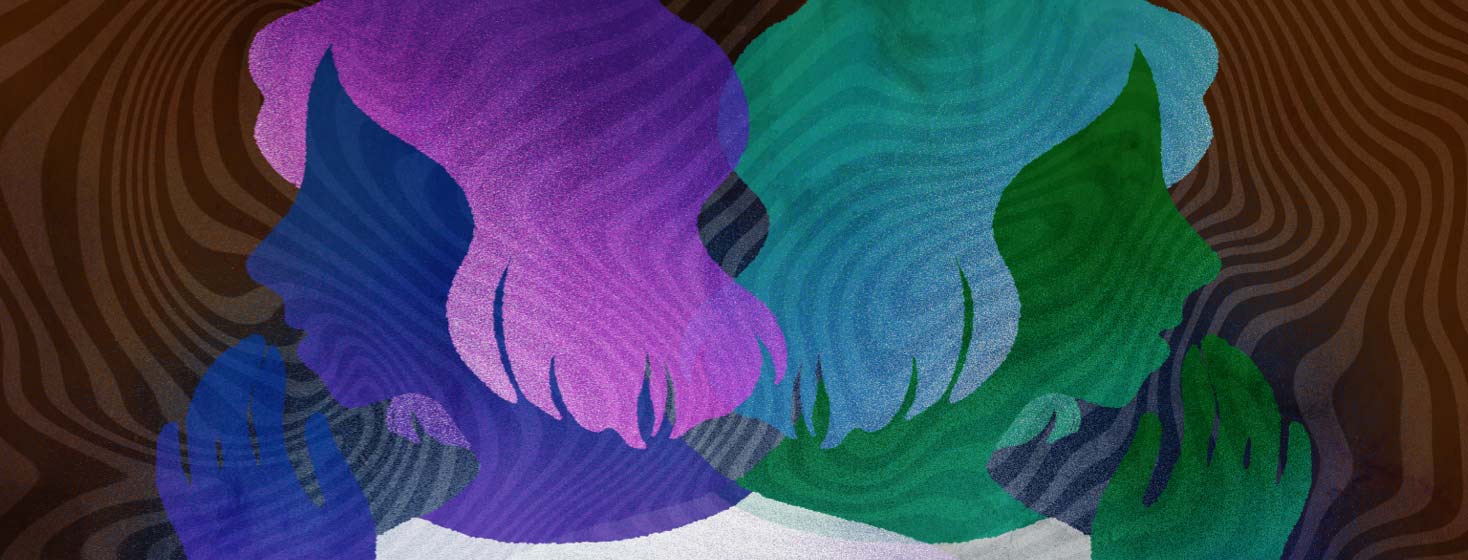When Bipolar Meets ADHD
Impulsivity. Excess energy. Irritability. Trouble concentrating.
Does this sound like you are cycling into mania/hypomania? Depression? Or is it attention-deficit/hyperactivity disorder (ADHD)? How can you tell?
Bipolar and ADHD comorbidity
Bipolar is a mood disorder characterized by swings into depressive lows and hypo/manic highs. ADHD, on the other hand, is a neurodevelopmental disorder marked by inattention, hyperactivity, and impulsivity.
But bipolar and ADHD can have overlapping symptoms, which can make it hard for people and even doctors to tell the 2 conditions apart. Correct diagnosis is critical for receiving the right treatment and developing effective coping strategies.
"Guess what, you also have ADHD!"
When I saw a psychiatrist at age 14 during my first mood episode, I found myself on the receiving end of a string of questions that seemed unrelated to my then pressing circumstances of being so sad that it physically hurt and I wanted to die.
Why was this doctor woman asking me about school? And if I enjoyed reading? And how did she guess that I was always misplacing my things?
Within 10 minutes, she had diagnosed me with ADHD. By the end of the session, she had also diagnosed me with bipolar disorder.
Double whammy
Living with both bipolar disorder and ADHD presents a unique set of challenges that are more common than you might imagine. In fact, nearly 20 percent of people with bipolar also have ADHD.1
Bipolar and ADHD may be common bedfellows, but that doesn't mean they always get along. In fact, they can make each other worse. For example, ADHD impulsivity mixed with the risk-taking of mania can be double the trouble.
Those with inattentive ADHD might forget to take their bipolar medication or regulate their sleep schedules, both of which are essential for living well with bipolar. When experiencing depression, the lack of concentration can exacerbate the already-real ADHD struggle to complete tasks.
Think you have ADHD, too?
See your doctor. Only a trained professional can tease out this tricky clinical conundrum.
When meeting with your doctor, they will ask you about your symptoms and will pay special attention to a few things to help tell the conditions apart:
- Persistence – ADHD symptoms are present continually, whereas hypo/mania are episodic, meaning they come in intervals.
- Moods – Mood symptoms are core to bipolar. Moods can be dysregulated in ADHD, but mood symptoms alone are not enough for a diagnosis.
- Timeline – Technically, symptoms of ADHD must be apparent before age 12 to qualify, even if no one asked you about it when you were young. The average age of onset for bipolar is 25.2
ADHD is not just for kids
ADHD gets a lot of airtime as a children's disorder. While many children do grow out of their ADHD symptoms, plenty do not and continue to experience ADHD as an adult. I personally have been taking medication for and managing ADHD ever since that first psychiatrist visit.
Sometimes, people are diagnosed retroactively. During your visit, a doctor may ask you about your symptoms and behaviors as a child and find that ADHD was likely present. For many adults who continue to struggle with executive functioning, this can feel like a huge relief, as it gives reason to many life experiences and challenges they may have faced.
There is hope for living with bipolar and ADHD
It's important to get a thorough evaluation if you suspect you have ADHD along with bipolar. Certain treatments for ADHD, such as stimulants, can make some cases of bipolar worse, which your doctor will want to consider.
It's possible to live well with both bipolar and ADHD, but managing this complex interplay requires a comprehensive, hands-on approach from both you and your treatment team. Medication, therapy, and lifestyle changes can all be leveraged to give you the opportunity to live your best life!
